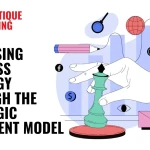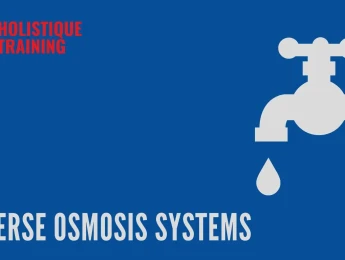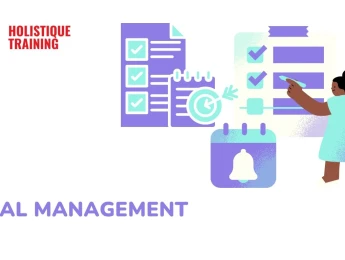The Alignment–Commitment (DAC) Workshop Facilitator Course is designed to equip facilitators with the knowledge and skills necessary to lead workshops that foster organisational alignment and commitment. DAC, which stands for Direction, Alignment, and Commitment, is a framework aimed at ensuring that all members of an organisation or team are moving in the same direction, understand their roles, and are fully committed to achieving common goals. This course provides facilitators the tools to guide teams through the DAC process, ensuring that leaders and employees work together cohesively and effectively.
The course focuses on understanding the principles of DAC, developing facilitation techniques to create engaging and productive workshops, and mastering the art of managing group dynamics to foster collaboration and consensus. Facilitators will learn how to help organisations clarify their vision (Direction), establish effective communication and coordination (Alignment), and build buy-in and enthusiasm (Commitment). By learning how to structure DAC workshops, facilitators can help organisations create a strong sense of purpose and shared responsibility, resulting in improved performance and organisational success.
Through theoretical understanding and practical exercises, participants will gain the skills to lead DAC workshops confidently. The course will cover everything from workshop preparation and facilitation techniques to managing challenging participants and measuring workshop outcomes.
Upon completion of this course, participants will be able to:
- Understand the DAC framework and its importance in creating organisational cohesion.
- Learn how to design and facilitate effective DAC workshops for teams and organisations.
- Develop skills to manage group dynamics, foster collaboration, and handle conflicts during workshops.
- Gain practical techniques to help teams align their goals and foster commitment to shared objectives.
- Learn to measure the effectiveness of DAC workshops and apply continuous improvement strategies.
This course is designed for:
- Workshop Facilitators : Individuals responsible for leading workshops to improve team alignment and commitment within organisations.
- Team Leaders and Managers : Professionals seeking to improve the cohesion and performance of their teams by aligning them around shared goals.
- Human Resources and Organisational Development Practitioners : HR professionals focused on driving employee engagement, alignment, and organisational culture change.
- Consultants and Coaches : External consultants or coaches who work with organisations to improve leadership effectiveness and team dynamics.
- Senior Leaders and Executives : Executives who want to foster a sense of direction, alignment, and commitment within their leadership teams and across the organisation.
This course incorporates theoretical knowledge and practical facilitation skills to ensure participants can effectively lead DAC workshops. The methodologies include:
- Instructor-Led Presentations : Participants will receive expert guidance on the DAC framework and facilitation strategies.
- Interactive Group Exercises : Through role-playing and simulated workshops, participants will practice designing and leading DAC sessions.
- Case Study Analysis : Participants will review real-world examples to understand how different organisations have applied DAC workshops.
- Peer Feedback and Reflection : Participants will receive constructive feedback from instructors and peers to improve their facilitation skills.
- Facilitator Toolkits : A comprehensive set of tools, templates, and resources will be provided to help participants structure and deliver successful DAC workshops.
Day 5 of each course is reserved for a Q&A session, which may occur off-site. For 10-day courses, this also applies to day 10
Section 1: Introduction to the DAC Framework
- Overview of Direction, Alignment, and Commitment (DAC)
- The Importance of Organisational Alignment and Commitment
- Understanding the Roles of Leaders and Teams in the DAC Process
Section 2: Workshop Design and Preparation
- Setting Workshop Objectives: Identifying the Desired Outcomes
- Structuring a DAC Workshop: Phases and Key Components
- Preparing Workshop Materials: Tools, Templates, and Resources
Section 3: Facilitation Techniques for DAC Workshops
- The Role of the Facilitator: Encouraging Participation and Engagement
- Techniques for Leading Discussions and Facilitating Group Work
- Using Visual Aids and Interactive Tools to Enhance Learning
Section 4: Managing Group Dynamics and Conflict Resolution
- Understanding Group Dynamics and Their Impact on Workshop Success
- Techniques for Managing Difficult Participants and Conflicts
- Building Consensus and Fostering Collaboration Among Team Members
Section 5: Driving Organisational Alignment
- Helping Teams Clarify Their Vision and Goals (Direction)
- Aligning Team Efforts to Achieve Organisational Objectives (Alignment)
- Ensuring Accountability and Clear Roles within the Team
Section 6: Fostering Commitment
- Techniques to Build Enthusiasm and Buy-In (Commitment)
- Addressing Resistance to Change: Strategies for Overcoming Challenges
- Creating a Culture of Accountability and Ownership
Section 7: Measuring Workshop Success
- Tools for Evaluating the Effectiveness of DAC Workshops
- Gathering Feedback from Participants and Stakeholders
- Applying Lessons Learned for Continuous Improvement
Section 8: Case Studies and Practical Applications
- Real-Life Examples of Successful DAC Workshop Facilitation
- Common Challenges and Solutions in Aligning and Committing Teams
- Facilitator Best Practices: Ensuring Long-Term Success
Upon successful completion of this training course, delegates will be awarded a Holistique Training Certificate of Completion. For those who attend and complete the online training course, a Holistique Training e-Certificate will be provided.
Holistique Training Certificates are accredited by the British Assessment Council (BAC) and The CPD Certification Service (CPD), and are certified under ISO 9001, ISO 21001, and ISO 29993 standards.
CPD credits for this course are granted by our Certificates and will be reflected on the Holistique Training Certificate of Completion. In accordance with the standards of The CPD Certification Service, one CPD credit is awarded per hour of course attendance. A maximum of 50 CPD credits can be claimed for any single course we currently offer.
- Course Code PH1-136
- Course Format Classroom, Online,
- Duration 5 days








